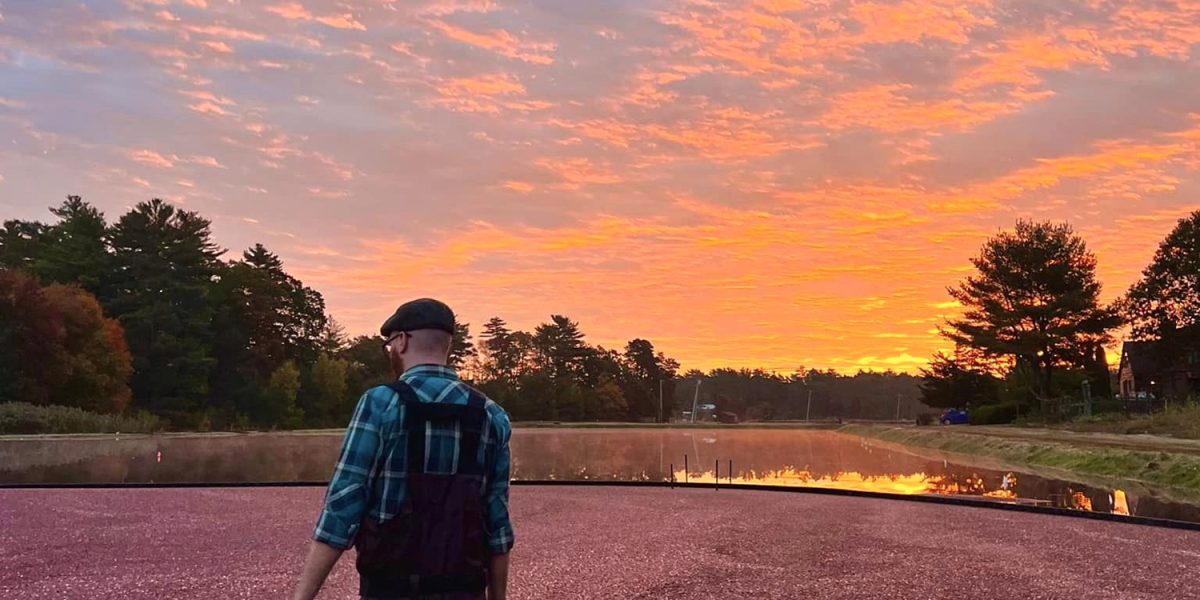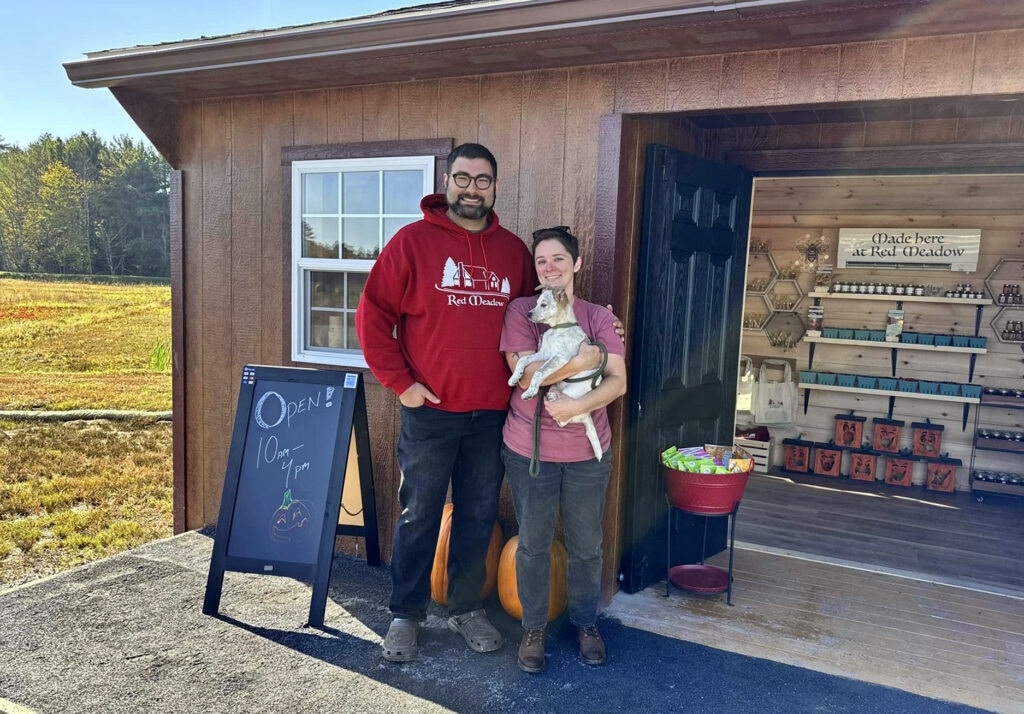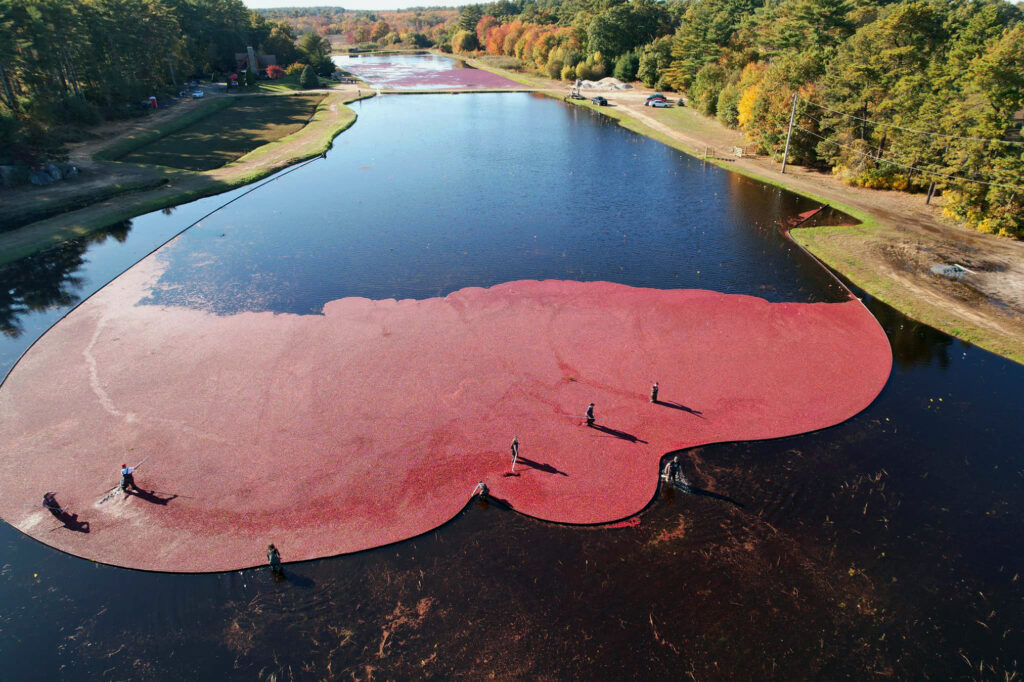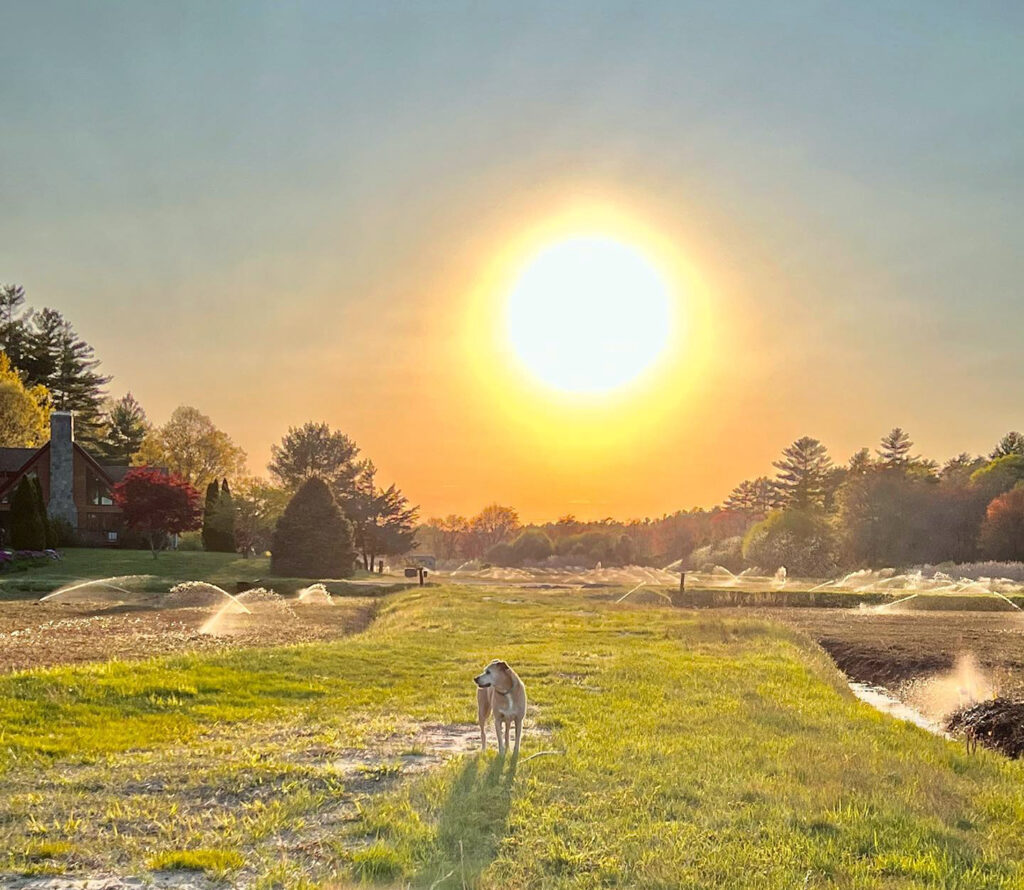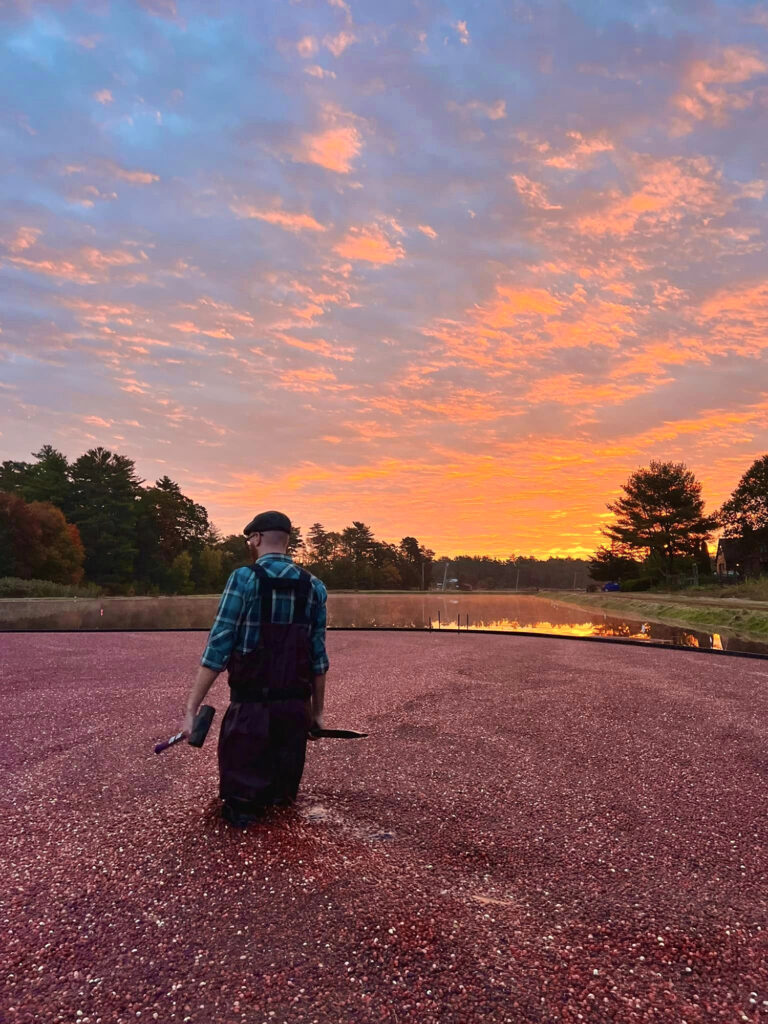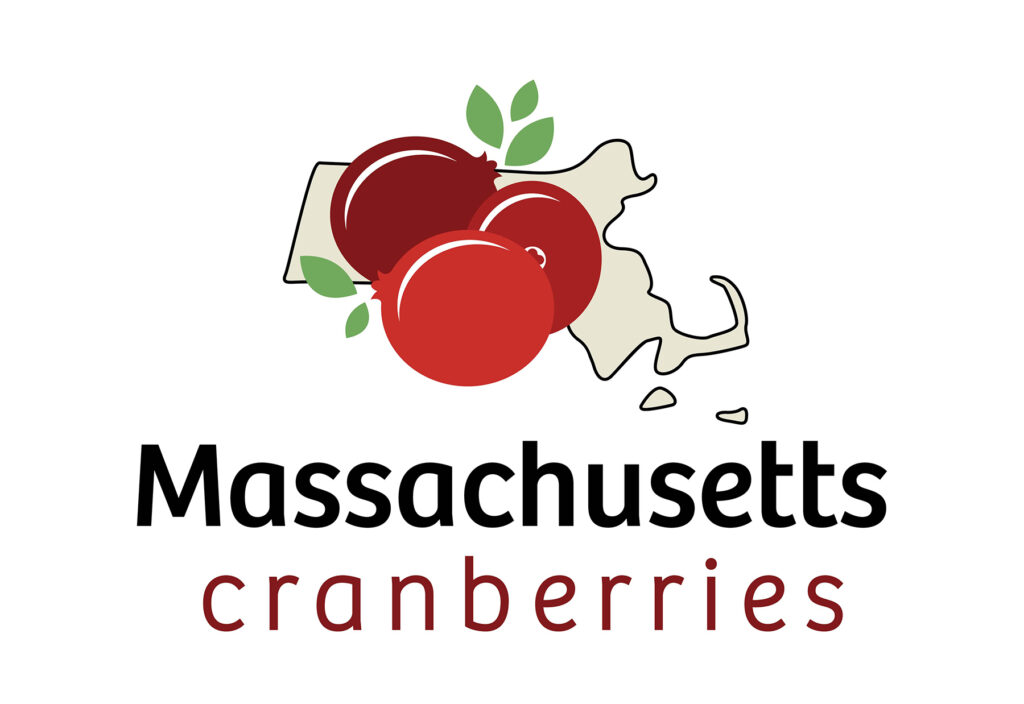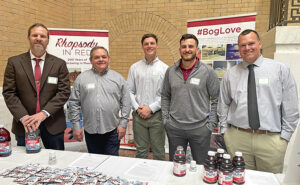COUNTRY FOLKS GROWER – Previously located on the seaside peninsula of Hull, Massachusetts, Jordan and Equus Trundy optimistically searched the real estate market for a farm property to spread their wings, seeking more acreage to suit their animals and farming interests – endeavors they have labeled their “passion projects.” The couple unexpectedly came upon a tempting listing for sale – both were enchanted by the home, farm, and gardens. They suddenly found themselves with a mere 24-hours to make a bidding decision.
Peering back into their individual histories, the Trundys each engaged in some light farming experience, with Jordan’s former blueberry farming job, and Equus’s past animal management role with horses. Neither one had official agriculture management or high-level farming experience. With a little dash of hope and a zest for adventure, they plunged forward, and secured their new home.
Jordan and Equus first became acquainted while attending Wheaton College, where they both worked an IT helpdesk. During their early experiences as a couple, they enjoyed a date at A.D. Makepeace’s Cranberry Harvest Celebration, a former annual festival honoring the quintessential New England berry. Post graduation, their careers led them both to work in information technology. Fast forward to 2020 and their farming interest peaked. The couple would definitely be new to the cranberry and agriculture scene but have both long appreciated the farming industry. With a growing drove of beloved farm animals to tend to, they found themselves entrenched in learning farming the cranberry way.
At 17-acres, The Trundys’ Carver property, Red Meadow Farm, is a scenic retreat in the region’s cranberry bog-rich landscape. Seven acres of bogs, an expansive garden, and a plot under development for next season’s pumpkin patch, fill out the landscape. Add in a small free range “retired” sheep herd (that heartily nibble down the property’s weeds and grass), and their new beehives (plus the possibility of an apiary), and you have a fully functional and diverse farm with a promising future.
Adapting their skills to cranberry farming has been a whole new adventure. Gratefully, the Trundys enjoyed their first season’s harvest side-by-side with the farm’s prior owners. This kind of hospitality is widespread among the growers’ community, brimming with welcoming, multi-generation farming families that thrill at coaxing newcomers through the industry ropes. They intrinsically share their wisdom when they function as teachers, supporting the future of the industry.
With so much to learn about water conservation, land management, native vine cultivars, frost alerts, information tracking, irrigation, agri-tourism, and the like, advice and networking through valued partners, colleagues, friends, and mentors, is priceless. “There is no competition among the farmers,” shares Jordan, “Everyone is helpful. This is the true definition of community – it’s home, social life, and work – it’s not just your day job – it’s how you structure your year, who you connect with daily, and the people you’re grateful to befriend.”
Deep into their second year, the Trundys’ first full sole harvest brought challenges and equal rewards. They worked from sunup till sundown, corralling pools of berries under the glow of vehicle headlights. Thankfully many people enjoy volunteering at harvest, and help was at hand. The couple persevered but struggled with equipment maintenance techniques and other technical issues. Most of the cranberry industry’s heavy farm equipment is not built in industrial volume, but one piece at a time by veteran growers themselves. “There is no video, guidebook, or comprehensive tutorial on how to grow cranberries,” shares Jordan, “Understanding equipment operation and repairs has been another whole education.”
In the following seasons, Jordan and Equus tapped their inquisitive conviction, exploring broader research and farming techniques, accomplishing DIY projects, troubleshooting on the web – all time-tested methods inspired by their collective liberal arts education.
“It’s unfortunate that college-bound students aren’t presented with a higher education-to-career option focused on farming,” shares Equus. “A liberal arts education is fundamental to living an abundant life, it inspires you to constantly learn and grow. We’ve proven that you can be a liberal arts person and also be a career farmer by applying those ideals in our daily customs.”
The Trundys are passionate about living a lifestyle of working and appreciating the land, knowing the folks in the industry, and reaping the benefits of community-sourced farming practices. By originating resources to reliably sustain their growers’ lifestyle, they are ensuring their own success through a self-generated cranberry “tool collection.” “What a rewarding and scientific experience this has been, adapting modern methods and technology to accomplish the age-old traditions of farming!” says Jordan.
Today the couple marvels at the wonder they experience day in, and day out. They are surprised by their conversations with visitors, learning that cranberries are still vastly unknown to those residing outside New England or the US. Tourists visiting their bog tours from distant lands, like Japan and India, are eager to learn about the native fruit prior to its arrival in their homeland.
For the future, the Trundys aspire towards growth. They’ve experienced exceptional success in their agri-tourism endeavors with bog tours and harvest experiences, where Equus serves as the tour guide. Guests attend tours during the growing season, harvest, and post-harvest to experience bogs up close, discuss vines, growth patterns, and enjoy the scenery. The farm’s “wade in the bog” experience allows guests to step into a bog during wet harvest, donning waders, and absorb the process from within. The recently added farmstand attracts local sellers, showcasing New England-made products, their own cranberries and offerings, and the farm’s honey, a bestseller.
Jordan and Equus hope to tap more of the tourism trade, attracting more international visitors and school groups, and to give back to the community by offering speaking engagements on cranberry farming topics. “We’re also keeping tabs on current legislative challenges. A few bills on the table questioning water and land use create unnecessary challenges for cranberry farmers. We all understand and appreciate environmental and conservation concerns, but we also need to be mutually on the same page on regulations that support the agriculture industry so our opportunities for growing are maintained. The land still needs to be able to grow food!”
by Michelle McGrath, McGrath PR | Media Relations, mcgrathpr.com,
on behalf of Massachusetts Cranberries, one of the oldest farmers’ organizations in the United States, established as Cape Cod Cranberry Growers’ Association in 1888.

